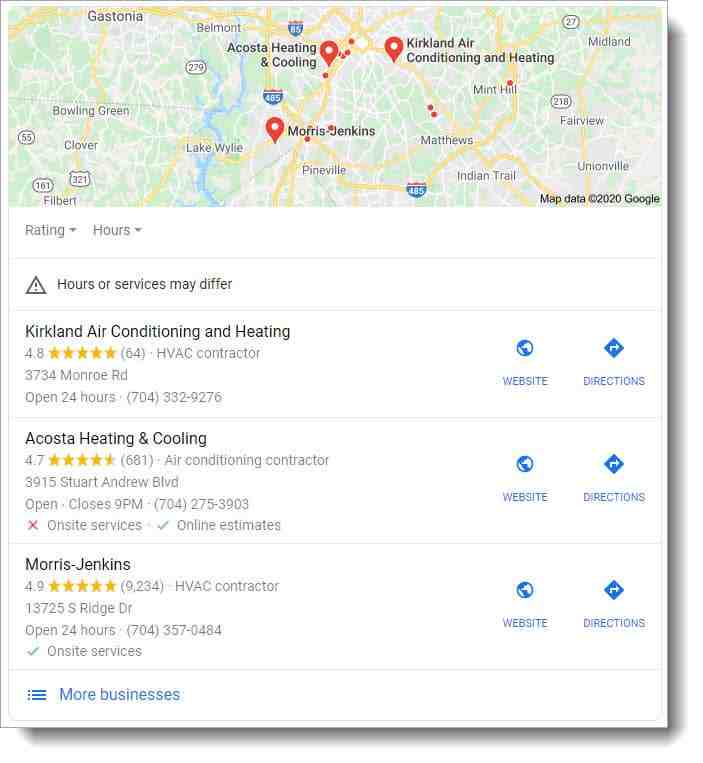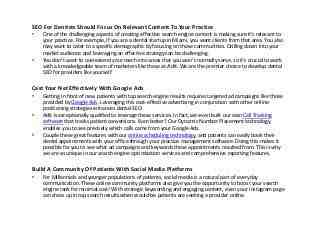Top 7 SEO Keyword Research Tools For Agencies
All successful SEO campaigns are based on accurate and complete data. And that process starts with the right keyword research tools.
Of course, you can collect keyword data manually on your own. But while you may save on the cost of a premium tool, manual keyword research costs you
A good SEO keyword research tool takes a lot of the guesswork out of it. Here are seven well-known and time-tested SEO tools that will help you dominate your market.
1. Google Keyword Planner
Google Keyword Planner screenshot, January 2023
Google Keyword Planner is a classic favorite.
It is free, but since the information comes directly from the search engine, it is reliable and trustworthy. It is also flexible and allows you to:
The tool is easily accessible and available as a web application and via API, and costs nothing; only requires a Google Ads account.
There are also a few things you should keep in mind when using this tool.
First, these are estimates based on historical data. This means that if trends change, it won’t necessarily be reflected here.
Google Keyword Planner also can’t tell you much about the SERP itself, such as what features you can take advantage of and how the feature converts.
As part of Google Ads, the PPC experience can help you learn more. You’ll find broad trends at a demographic or granular level, such as a city, region, or major city.
Google Keyword Planner also tends to combine data for similar keywords. So if you want to know if [keyword near me] is better than [keywords near me], you’ll need a different tool.
Finally, the tool uses broad definitions of words like “competition,” which don’t tell you who’s ranking for the term, how much they’re investing to maintain that ranking, or how likely you are to knock them off their coveted top spot. 10 classifications.
That said, it’s a great tool if you just want a quick look or new ideas, if you want to use an API and build your own tools, or if you just prefer to do the other tasks yourself.
2. Keyword.io
Cost: Free, $29/month and $49/month.
If Google Keyword Planner isn’t enough, but you’re on a tight budget, Keyword.io might be the alternative you need. It also has different characteristics.
Keyword.io uses autocomplete APIs to pull core data from various sites and search engines, including Google, Amazon, eBay, Bing, Wikipedia, Alibaba, YouTube, Yandex, Fiverr, and Fotolia. This is perfect for niche customers and meeting specific needs.
It also has a question/intent generator, an interactive topic explorer, and a topical overview tool.
In its user interface (UI), you’ll find an easy-to-use filter system and a chart that includes competition, search volume, CPC and some other details about your chosen keywords.
It has some limits, though.
You can run up to 20,000 keywords per seed with a limit of 100 requests per day (five per minute) or 1,000 requests per day (10 per minute) on their paid plans.
Your access to the API, Related Keyword Tool, Google ad data, and other features is also limited to paid accounts.
3. Semrush
Cost: $119.95 to $449.95 per month.
In its digital marketing suite, Semrush offers a collection of six keyword tools and four competitive analysis tools with a database of over 21 billion keywords.
You can get a complete overview of the keywords you’re seeing, including organic and paid search volume, intent, competition, CPC, historical data, SERP analysis, and more.
You’ll get keywords and related questions, as well as tons of guidance, ideas, and suggestions from the Semrush Magic, Position Tracking, and Organic Traffic Insights tools.
The Keyword Planner, however, is where a lot of the magic happens.
The organic competitors tab makes it easy to spot content and keyword gaps. Expand them and develop clusters that will help you get traffic and conversions.
You can also view long-tail keyword data and other data to see what Page 1 is doing in terms of competition, difficulty, and opportunities at a broad or hyper-local level.
The full set of tools is a huge plus. Teams can collaborate, share knowledge and plan.
Seamless integration lets you integrate your data, so teams can easily collaborate, share information, and strategize.
And when you’re done, it can track everything you need for a successful digital marketing strategy.
Some of the tools they offer include:
The best features of Semrush when it comes to keyword research are its historical information and PPC metrics.
You can drill down into campaigns and keywords to unlock the secrets of the SERPs and provide in-house or agency teams with invaluable insights they don’t usually have access to.
4. Moz Keyword Explorer
Screenshot from Moz, January 2023
Cost: Free for 10 queries per month. $99-$599 per month.
With a database of over 500 million keywords, Moz Keyword Explorer can be a great option if you want to build a strategy rather than just get a quick look at some keyword data.
Moz has long been a leader in the SEO space.
Constantly updating and improving its keyword explorer tool and other core services, Moz stays on top of trends and is known for providing SEO professionals with the latest tools. And it has done so for over a decade.
Like Google’s Keyword Tool, Moz’s Keyword Planner provides insight into the difficulty and monthly search volume of terms. It also allows you to drill down geographically.
When you get started, you’ll find the Keyword Overview, which provides monthly search volumes, ranking difficulty, organic click opportunities, and an estimated priority level.
However, unlike the Google Keyword Tool, Moz gives you data beyond the basics. Think of it like keyword research and SERP analysis.
Moz tends to have fewer keyword suggestions. And like Google Keyword Planner, it provides range estimates for search data rather than a specific number.
However, the database is updated frequently, so you can be sure you’re up to date with constantly changing consumer search habits and rankings.
Plus, it’s easy to use, so teams can quickly tackle marketing tasks like finding opportunities, tracking performance, identifying problem areas, and gathering page-level details.
Moz also offers several other tools to help you get your site on track and ahead of the competition, but we really like it for its keyword research and flexibility.
5. Ahrefs Keyword Explorer
If I had to describe Ahrefs in one word, it would be power.
Enter a word in the search box and you’ll be presented with several panels that can tell you everything you want to know about that keyword.
Total search volume, clicks, difficulty, SERP features and even a volume difficulty distribution. And although it may seem like a lot, all the information is well organized and clearly presented.
Ahrefs provides terms in a parent-child topic format, providing the terms with context, so you can learn more about the terms, such as intent, while identifying overlap and keeping everything easy to find and understand.
These topics appear when you search for a related term, including the term’s SERP ranking, SERP result type, first page ranking difficulty scores, and a user-submitted SERP snapshot. You can keep it broad or narrow everything down by city or language.
Ahrefs can be a bit expensive. Agencies may struggle to scale if they prefer multiple user or client accounts, but it’s still one of the best and most reliable keyword research tools out there.
What I really like about Ahrefs is that it is comprehensive. It has one of the largest databases of any tool available (19.2 billion keywords, 10 search engines and 242 countries at the time of writing) and is updated regularly.
It makes international SEO strategies a breeze and includes data for everything from Google and Bing to YouTube and Amazon.
Also, they clearly explain their metrics and database. And this level of transparency means trust.
Other tools in the suite include:
6. SERanking
Screenshot from SERanking, November 2022.
Cost: $23.52-$239 per month, depending on rank check and payment frequency.
SERanking shines as a keyword research tool within a comprehensive SEO toolkit. SERanking helps you reduce costs while providing features that enable agencies to meet the unique needs of clients.
One of the first things you’ll notice when you log in is its intuitive user interface. But this tool is not just another cute online tool.
SERanking’s US database includes 887 million keywords, 327 million US domains and 3 billion indexed backlinks. And that doesn’t include their extensive European and Asian databases.
The overview page provides a robust view of the data, including search volume, CPC, and a difficulty score.
SERanking also offers lists of related, low-volume keywords if you need inspiration or suggestions, as well as long-tail keyword suggestions with information on SERP features, competition levels, search volume, and other details you need to know to identify new opportunities
Of course, identifying the keywords is only the beginning of the mystery. How do keywords turn into conversions? SERanking offers keyword tools to help you answer this question.
You can find out who the competition is in organic results and see who is buying search ads, as well as details like estimated traffic levels and ad copy they’re using.
This allows you to see what’s working, learn about users searching for those terms, and generate new ideas to test.
SERanking offers agency features such as white label, report builders, lead generator and other features that you will find useful.
However, one of the features that agencies may find most useful in keyword research is SERanking’s massive keyword analysis, which allows you to run thousands of keywords and download comprehensive reports of all important terms.
Other SERanking Suite tools include:
SERanking is more affordable than some of the other tools out there, but it comes at a cost.
It’s not as robust as some of its competitors and it’s not as granular in the same way, but it still offers the features and data you need to create a successful SEO strategy.
And with its flexible pricing, this tool is worth considering.
7. BrightEdge Data Cube
If you’re looking for an AI-powered digital marketing tool suite that includes a quality research tool, BrightEdge might be the right choice for you.
Unlike other tools that focus on providing you with data and ways to analyze it, BrightEdge wants to do much of the time-consuming analysis.
Among its search, content, social, local and mobile solutions, you’ll find Data Cube – an AI-powered keyword and content tool that uses natural language processing to find related topics and keywords.
You’ll also find DataMind, an AI that helps you find search trends, changes in consumer behavior, and important competitor moves you need to know about.
Both together make it quick and easy to conduct keyword research, create topics, create content strategies, and strengthen your SEO plans.
Once you enter a topic or broad keyword, the tool will provide you with relevant keywords, search volume, competition levels, keyword value, its universal list, and the number of words in the phrase.
Filter the results according to a set of custom criteria to narrow down the list and get the information you need.
Once you have a list, select the ones you want to keep and download them or use them with BrightEdge’s other tools to build complete strategies and learn more.
This could include competitor analysis, SERP feature analysis, intent or other tasks.
For agencies offering local SEO, BrightEdge also offers HyperLocal, which helps you find and track keywords and keyword performance locally.
When you’re done, try the forecasting and opportunity tracking tools to monitor your progress and provide customers with the information they care about.
Perhaps the most agency-friendly feature is its Storybuilder – a reporting tool that lets you create rich client reports that provide clients with targeted overviews and the data that matters most to them.
If it sounds like the right tool for you, the company offers demos, but there are a few things you should keep in mind.
First, it only updates once a month. And while the company keeps its prices close to its chest, this suite of digital marketing tools is a significant investment. It may not be the best choice if keyword research is all you need.
Second, although the tools are very sophisticated and refined, there is a learning curve to get started.
You’ll also find that there are limits on features like keyword tracking, and that setup can be very time-consuming, with some adjustments requiring technical support.
Finally, BrightEdge’s keyword research tool doesn’t let you get too far into the weeds and doesn’t include PPC traffic.
Other than that, larger agencies and brands will find that it scales easily, has a well-designed user interface, and makes you look great to clients.
The Best Agency SEO Keyword Research Tools
This list contains only seven of the many tools available today to help you do your keyword research like an expert.
But no matter how many or which tools we share with you, it’s important to understand that none of them are flawless.
Each tool has its own unique strengths and weaknesses, so choosing a platform depends a lot on the type of clients you typically work with and personal preference.
In reality, you’ll probably find that you prefer to work between a few tools to get everything you’d like.
Google Keyword Planner and Keyword.io are the best options when you want to take a quick look at the data or if you want to export it to work with it elsewhere. You may even want to use this data with the other tools mentioned in this chapter.
Ahrefs, Moz, Semrush and BrightEdge are much more robust and better suited to agency SEO tasks.
While they’re not free (although they do offer free plans or a trial period except for BrightEdge), they allow you to really dig deep into the search space, resulting in more traffic, more conversions, and stronger SEO strategies . These benefits take more time and often come with a learning curve.
By far the most important keyword research tool you have access to is you.
Keyword research is more than just choosing the keywords with the highest search volume or the phrase with the lowest cost-per-click (CPC).
It is your knowledge, experience, insight and knowledge that transforms data into digital marketing you can be proud of.
Featured image: Paulo Bobita/Search Engine Journal
The number one SEO consultant in the world is Brian Dean. Brian Dean of Backlinko is one such dynamic SEO marketer. His blog offers a lot of good SEO advice and he is cited as an expert in many publications.
What is the most accurate keyword research tool?
15 Best Keyword Research Tools
- Semrush.
- Soovle.
- Yaaxy.
- Google Search Console.
- Ahrefs Keyword Explorer.
- SECockpit.
- Google Keyword Planner.
- KeywordTool.io.
Is Google Keyword Planner Accurate? The truth is, Google Keyword Planner has never been so accurate. Figures are always rounded to the nearest thousand and are only estimates anyway, not exact figures, making the Keyword Planner suitable for discerning estimates and allowing you to target your keyword strategy.
What are the 4 types of keywords?
There are 4 types of keywords: short tail, long tail, question and intent targeting keywords.
What are the 3 types of keywords? Informational keywords – searchers looking for an answer to a specific question or general information. Navigation keywords – search engines that intend to find a specific site or page. Business keywords – searchers looking to research brands or services.
What are main keywords?
In SEO terms, these are the words and phrases that searchers enter into search engines, also called “search queries”. If you put everything on your page, all images, videos, copy, etc., in simple words and phrases, those are your main keywords.
What are primary keywords?
Top keywords are the top terms your target audience is searching for. Marketers use top keywords when writing content pieces to improve their content marketing strategy. Rank for top keywords on search engine results pages (SERPS) to drive traffic to your business website and improve SEO ranking.
What are some examples of keywords?
Keywords are the words and phrases that people type into search engines to find what they are looking for. For example, if you’re looking to buy a new jacket, you might type something like ‘men’s leather jacket’ into Google. Although this phrase consists of more than one word, it is still a keyword.
Which is the most powerful SEO tool?
Where is Google keyword Planner?
To open Google Keyword Planner, click Tools & Settings in the upper right corner. Then, from the drop-down menu, select Keyword Planner under Planning. Next, you will see two options: Discover new keywords: This option gives you new keyword ideas that you can use to increase your website traffic.
Does Google have a free keyword planner? Google Keyword Planner is free. All you need is a Google Ads account to use it. To set one up, go to ads.google.com, click ‘Get started now’ and sign in to your Google Account.
How do I open Google keyword planner on my phone?
To switch to desktop mode on your mobile browser, you need to click the Menu button in the upper right corner of your Chrome browser. Then select Request a desktop site and the page will switch to desktop mode. From there, you can use and navigate the Keyword Planner just like you would on your computer.


